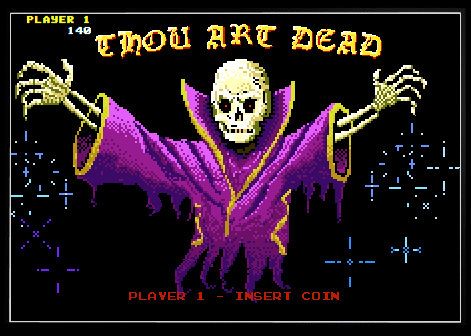The 1980s are often fondly remembered for their iconic music, flamboyant fashion, and a video game boom. For those who have ever pumped coins into arcade machines, trying desperately to fend off hordes of marauding zombies, the name "House of the Dead" is bound to awaken a unique blend of exhilaration and nostalgia.
With the neon haze of arcade glory days illuminating our journey, let’s delve into the gory guts of this arcade giant, an opus of undead shooting splendor, and understand its impact on a generation and beyond.
When Zombies Knocked at the Arcade Door: Gameplay and Plot
"House of the Dead" plunged players into the grim shoes of AMS agents, Thomas Rogan and "G", who embark on a rescue mission at the forbidding Curien Mansion. This isn't a mere haunted house story; it’s a den of biologically engineered undead horrors, masterminded by the twisted scientist Dr. Curien.
Players wielded not joysticks, but light guns, firing at droves of the undead. Precision was key. Aim true, and a headshot could down a monster. Aim poorly, and they’d lumber closer, relentlessly. Between the desperate saving of hostages and the terrifying boss battles, this game was a masterclass in tension.
Echoes from the Past and Present: The Gaming Landscape
While "House of the Dead" was a significant beacon in the gaming terrain, it was neither the pioneer of horror nor of light gun shooters. However, what it brought to the table was a narrative depth combined with adrenaline-pumping gameplay. Earlier titles, like "Duck Hunt", introduced gamers to the light gun, but "House of the Dead" wielded it as an instrument of immersive horror.
It’s tempting to draw parallels with "Resident Evil", another horror giant. However, where "Resident Evil" savored its dread, building an atmospheric tale, "House of the Dead" was the furious thunderstorm to its creeping fog.
Behind the Barrels: Characters and Controls
Thomas Rogan and "G" might not have the narrative depth of some of their video game contemporaries, but they represented the everyman. Everyman, that is, who's handy with a firearm against a zombie apocalypse. Their adversaries, from the mutated to the monstrous, delivered a smorgasbord of horror, each demanding unique strategies to defeat.
Controls were where "House of the Dead" diverged from many. Instead of traditional buttons and sticks, players wielded the aforementioned light guns, a physical representation of the in-game weapon. This melding of real-world action with in-game consequences birthed an immersive experience few other games could match.
Genesis and Reverberations: Origin and Legacy
Emerging from the labs of SEGA, a titan of the gaming world, "House of the Dead" was conceived in an era witnessing a resurrection of the zombie genre in popular culture. These weren't the somber creatures of yore. These were faster, more varied, and decidedly more lethal.
The legacy of "House of the Dead" is multi-faceted. It gave birth to a franchise spanning multiple titles, spinning tales of horror across various locales. But perhaps more crucially, it etched a blueprint for future horror games, illustrating how narrative could harmoniously coexist with action.
Final Reckoning
"House of the Dead" was more than an arcade game; it was an experience. For every player who felt their heart rate spike as the undead drew near, or those who reveled in the camaraderie of co-op gameplay, it represented a golden age of arcades, where stories were not just told but lived.
It’s easy, in an age of VR and hyper-real graphics, to downplay the impact of these pixelated undead. But, much like the zombies it championed, "House of the Dead" refuses to be laid to rest, shambling on in the memories of those who experienced its terrifying splendor and setting a benchmark for all the horror-filled digital adventures that followed.




























No comments:
Post a Comment